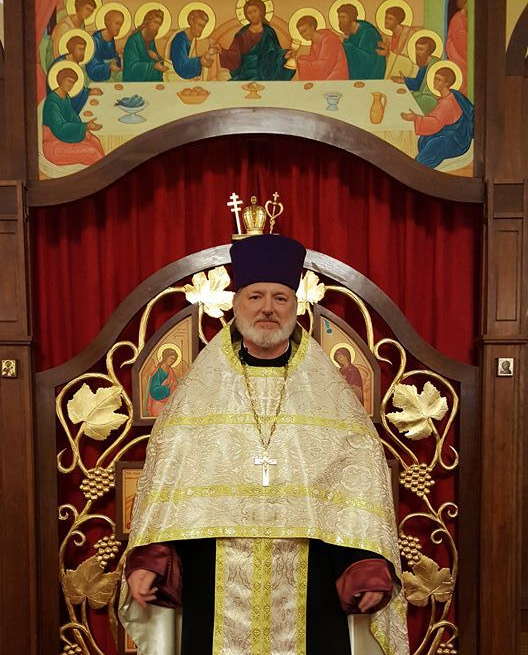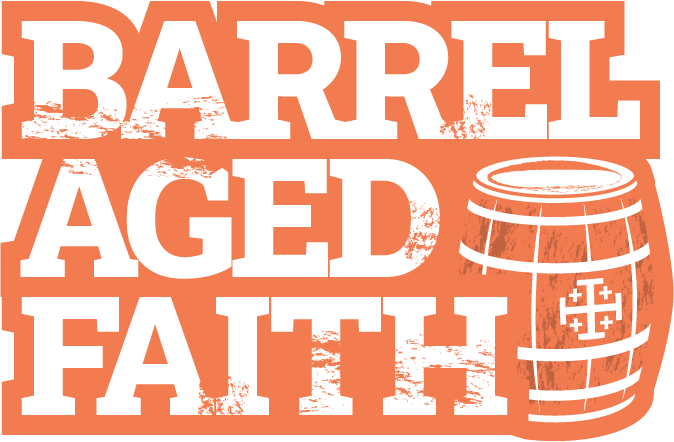
Growing up priests were not something we had at our church, and the only image I had of priests came from the movies, which generally were negative, corrupt depictions. Combine that negative backdrop with an elementary understanding of church history and the Protestant Reformation, when all Christians were ‘freed’ from the Roman priesthood, and my chances of ever imagining a ‘priest’ in a favorable light were not good.
In general, Evangelical Christians are uncomfortable calling anyone a priest besides Jesus (Hebrews 4:14-15). The line of thinking goes–“All believers now have direct access to God, because Jesus paved the way into the Holy of Holies (God’s Dwelling Place), which was revealed when the temple curtain (blocking the way) was torn in two at the hour of his death (Mt 27:51). The Old Testament priesthood ended with Jesus, and now we can all directly approach the throne of grace by His authority (Heb 4:16), which in turns makes us all his priests, not just a select few (1 Peter 2:9). To think of an ordained priesthood operating today apart from all Christians is, for most evangelicals, the equivalent of saying that “the way is blocked again to God,” and is deemed an unacceptable and un-Biblical position.
So why then do Catholics have priests?
I was surprised to find that there was much confusion around this topic, which primarily comes from issues in translating the Bible into modern languages today and throughout history. The word ‘priest’ actually cannot be found in the Bible. It is not an ancient word and therefore it is not found in the original languages of the Bible. What we find in the New Testament are two Greek words that we have historically translated as ‘priest’ which are presbyter and hieros.
“What we find in the New Testament are two Greek words that we have historically translated as ‘priest’ which are presbyter and hieros.”
The word, ‘presbyter,’ often translated into English as the word, ‘elder,’ is mentioned in the New Testament 19 times for the title or office of a Christian minister. In contrast, the word, “pastor,” the most preferred title for evangelicals for their Christian minister, is mentioned only once (Eph 4:11). “Presbyter” appears to be the preferred term for a Christian leader who is charged with leading, overseeing, and administering a church in a city, and this can be seen particularly clear when the apostle Paul goes from city to city appointing presbyters in Acts 14:23 for the churches. Toward the end of his life, Paul gives this task of ‘appointing presbyters’ to Titus and Timothy as a way of showing that he wanted this process to continue. As he writes, “This is why I left you in Crete, that you might amend what was defective, and appoint presbyters in every town as I directed you” (Titus 1:5).
So why don’t Catholics simply call their leaders presbyters instead of priests?
Surprisingly, they do and always have! To this day, in the the historical languages (Greek, Latin) of the Catholic Church, these leaders are still called ‘presbyters.’ Interestingly, the word ‘priest’ never existed until other cultures began translating the word presbyter into their own language. For example, the Germans began using a shorter version of the word presbyteros and called their Catholic leaders by the word, preost, and the English translated the same word into priest. Therefore, whenever a church refers to their leader as priest, they are simply saying the English version of the word presbyter!
“Whenever a church refers to their leader as priest, they are simply saying the English version of the word presbyter!”
But what about this other word for priest, hieros? In the New Testament, hieros was not used to describe an office of oversight in the church like the word presbyteros, but instead referred generally to the Old Testament priesthood. A hieros was one who managed the Temple and offered sacrifices to God. This same word also is applied to Jesus the High Priest (hieros) who offered his own life as a holy sacrifice for the entire world and to the Church when is referred to collectively as a “kingdom of priests.”
Therefore, we can conclude that the Catholic Church does teach in harmony with the scriptures that every believer is a heiros. However, the Catholic Church, like other churches, teaches that there is no “Presybtery of all Believers.” There really are appointed and anointed leaders in the New Testament Church that doesn’t include everyone. In other words, “All believers have direct access to God through their Mediator, Jesus Christ, but not all believers have the God-given authority and gifting to oversee local churches.” This is the difference between these two words.
[As a side note, I think scholars who spend time translating the Bible should find a new word for hieros. This would prevent general confusion in the way we communicate between churches and in the world of Biblical scholarship. My preference is to simply call them ‘the hieros.’ To continue to use the word ‘priest’ for the Old Testament Levitical order is to take away its historical origins in the word ‘presbyter.’]
After learning about this “translation issue,” what originally appeared to be a problem for me within Catholicism now became a shining example of the Biblical model of church leadership being maintained for 2,000 years. The startling part to all of this is that one of the main battle cries of the Protestant Reformation from 500 years ago, “the Priesthood of All Believers,” was generally based off of misunderstandings and translation issues.

|
A CLOSER LOOK: THE WORD ‘PRESBYTER’ IN THE NEW TESTAMENT
1. The Apostles appoint Presbyters/Priests for each of the churches in order to shepherd and pastor them.
Acts 14:23 When they (Paul and Barnabas) had appointed presbyters/priests for them in every church, having prayed with fasting, they commended them to the Lord in whom they had believed.
Acts 20:17; 28-31; From Miletus he sent to Ephesus and called to him the presbyters/priests of the church. “Be on guard for yourselves and for all the flock, among which the Holy Spirit has made you overseers, to shepherd the church of God which He purchased with His own blood.”
Titus 1:5 For this reason I left you in Crete, that you would set in order what remains and appoint presbyters/priests in every city as I directed you,
1 Peter 5:1-4 Therefore, I exhort the presbyters/priests among you, as your fellow presbyter/priest and witness of the sufferings of Christ, and a partaker also of the glory that is to be revealed, shepherd the flock of God among you…
The Apostles and Presbyters/Priests attend the Council of Jerusalem and make authoritative decisions on behalf of the rest of the Church.
Acts 15:2; 4 And when Paul and Barnabas had great dissension and debate with them, the brethren determined that Paul and Barnabas and some others of them should go up to Jerusalem to the apostles and presbyters/priests concerning this issue. When they arrived at Jerusalem, they were received by the church and the apostles and the presbyters/priests, and they reported all that God had done with them.
Acts 16:4 Now while they were passing through the cities, they were delivering the decrees which had been decided upon by the apostles and presbyters/priests who were in Jerusalem, for them to observe.
The Members of the Church are called to fund the ministry of the Presbyters/Priests, submit and respect their authority (which came from the apostles who received their authority from Christ himself), and ask for their prayers of faith when they are sick or in sin.
1 Timothy 5:17-20 The presbyters/priests who rule well are to be considered worthy of double honor, especially those who work hard at preaching and teaching. For the Scripture says, “YOU SHALL NOT MUZZLE THE OX WHILE HE IS THRESHING,” and “The laborer is worthy of his wages.” Do not receive an accusation against a presbyter/priest except on the basis of two or three witnesses.
James 5:14 Is anyone among you sick? Then he must call for the presbyters/priests of the church and they are to pray over him, anointing him with oil in the name of the Lord;
A CLOSER LOOK: THE WORD ‘HIEROS’ IN THE NEW TESTAMENT
Jesus is our High Hieros (One who offers sacrifice) and the Church has become his kingdom of hieros to the world.
Hebrews 2:17 Therefore he [Jesus] had to become like his brothers and sisters in every respect, so that he might be a merciful and faithful high hieros in the service of God, to make a sacrifice of atonement for the sins of the people.
1 Peter 2:9 [Full Chapter] But you are a chosen race, a kingdom of hieros, a holy nation, God’s own people, in order that you may proclaim the mighty acts of him who called you out of darkness into his marvelous light.
|
